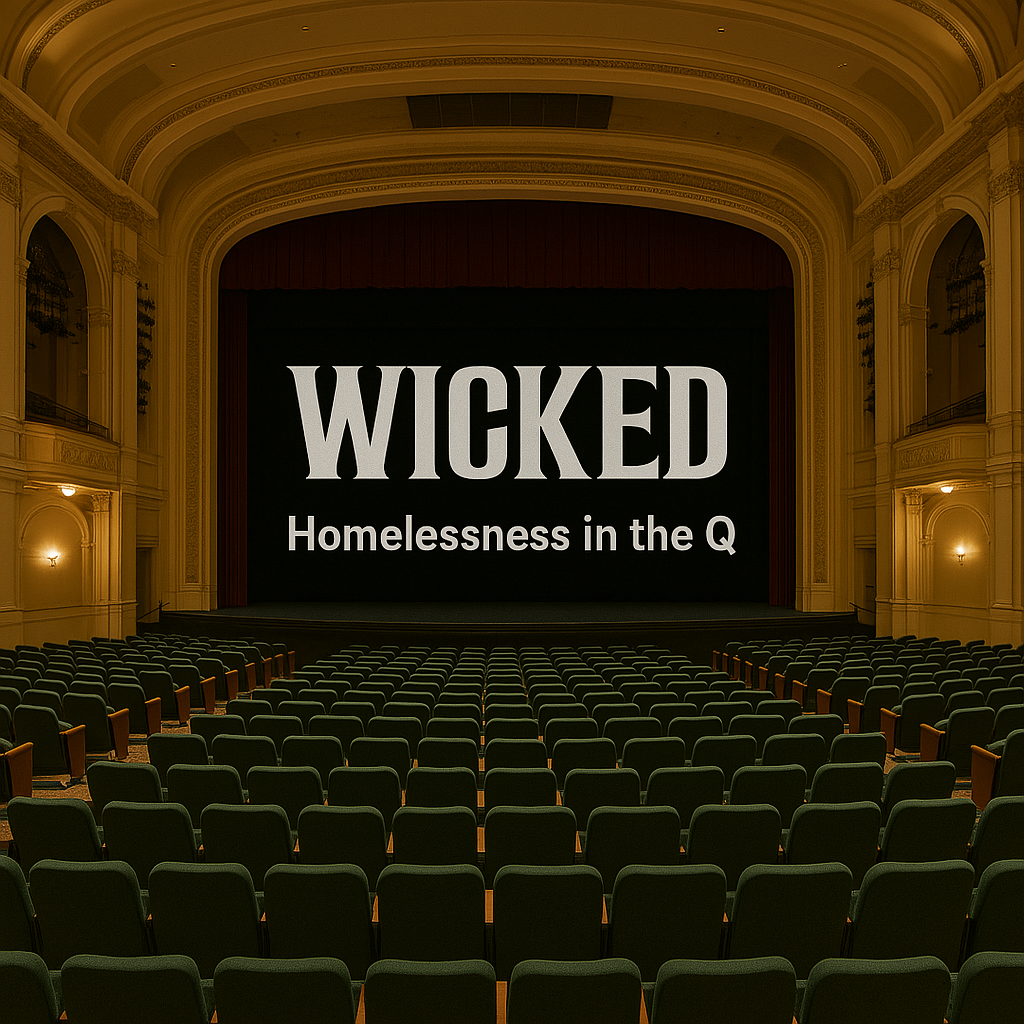Wicked: Homelessness in the Q
In the latest From The Director's Desk column, NMBLC Director Cathryn McGill takes on homelessness in Albuquerque and provides a framework for proactive change.

From The Director’s Desk
by Cathryn McGill
NMBLC Founder & Director
Who’s The Antagonist? (The Villain)
I live, work, and play in Albuquerque’s International District—a neighborhood that feels like the city's unofficial containment zone for homelessness. In one way it reminds me of Wicked (one of my favs), the Broadway musical that flips the script on who the villain really is. In other ways, that word—wicked—circles my mind in a very non-theatrical way. It fits because homelessness is what policy folks call a wicked problem: complex, tangled, and defying simple solutions.
Root Cause Analysis
This isn’t just about people sleeping on sidewalks. It’s about trauma, addiction, domestic violence, mental illness, poverty wages, systemic inequality—and most of all, a crushing shortage of affordable housing. I live, work, and play in the middle of it. So do our children.
Rosanne Haggerty, president of Community Solutions, puts it plainly: “Homelessness is a result of systems failure.” Yet our responses often criminalize people for trying to survive that failure.
The City’s Response - O-24-58
Earlier this year, the City of Albuquerque passed Ordinance O-24-58, banning camping, tenting, or lodging on public sidewalks, parks, and other rights-of-way. The language is clear:
“No person shall camp or place any bedding, sleeping bag, personal items, or erect any structure on any public sidewalk, street, alley, or other public property for the purpose of habitation.”
Supporters say it’s about safety and protecting public spaces. But let’s be honest—if someone has nowhere else to go, where do we expect them to be?
Sold Out House … Literally
Donald Whitehead of the National Coalition for the Homeless says, “Homelessness is a housing problem.” Not a character flaw. Not a moral failure. A housing problem. I don’t know if I fully agree—it’s more than that. But housing is the foundation.
In Albuquerque, over 1,300 people are unhoused on any given night. That’s more than the entire orchestra section at Popejoy Hall. Imagine each seat filled with a name, a face, a story. Now imagine trying to find space in a city with too few low-barrier shelters, supportive housing units, or affordable rentals—while costs keep rising.
Who’s The Protagonist? (The S/Hero)
We ask ourselves: What can we even do?
We start by rejecting apathy. We listen. We learn. We vote. We advocate for policies that invest in housing-first strategies, expand mental health services, and support trauma-informed outreach. We push our leaders to stop shifting people from sidewalk to sidewalk and start building places where people can stay.
And we stop pretending this isn’t our problem. Because it is. It belongs to all of us.
If money’s the issue—let’s be real—we have it. What’s missing is the will.
Read the ordinance. Call your elected officials. Ask what they're doing—and what you can do. Because while Wicked ends with a song, we don’t need a musical finale. We need all of us to take some immediate constructive action. You get to decide what that is.
This problem is wicked. But we don’t need to be.
